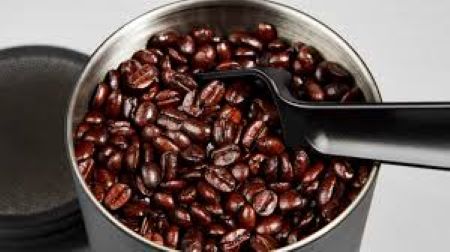HONOLULU, June 27, 2024 – The Hawaiian Coffee Labeling Act 211, which requires all Hawaii-branded coffee products to include a disclosure of the coffee’s origin and percentage of locally grown and other coffee grown elsewhere, is set to take effect next week.
The law also mandates that coffee labeled as “100 percent Hawaiian” must be grown and processed in the state. However, the Hawaii Department of Agriculture [HDOA] has not been provided with additional staffing to enforce these requirements, which could be a challenge for the department.
“Unfortunately, the law did not provide for additional inspection staff, so enforcement of the new law will be a challenge given the other statutory responsibilities of the branch,” said HDOA chair Sharon Hurd.
Hurd said the department will increase inspection of retail shelves statewide but may have to rely on “complaint-driven enforcement” for the immediate future.
The state Legislature has also passed a measure requiring all roasted coffee, instant coffee, and ready-to-drink beverages containing Hawaii-grown and Hawaii-processed coffee blended with coffee of another regional origin to contain no less than 51 percent coffee by weight from the Hawaii geographic origin claimed on the label. This requirement applies to coffee beans, roasted coffee, instant coffee blended with beans from other areas, ready-to-drink coffee beverages, and single-serve and bulk coffee packaging.
The HDOA’s Measurement Standards Branch is available for retail information or to report possible mislabeling or non-compliance. Retailers that do not package roasted coffee, instant coffee, or ready-to-drink coffee beverages are exempt from liability for the sale of coffee products that use a label or advertisement in violation of the coffee labeling law.
Meanwhile, India’s coffee output for the 2024-25 season is expected to decline slightly due to poor pre-monsoon rains, with a total of 6 million bags. The decline is primarily in arabica production, forecasted at 1.4mln bags, down from 1.5mln, while robusta production remains steady at 4.6mln bags. Global coffee production is expected to rebound by 7.1 million bags to 176.2mln, driven by recovery in Brazil and increased output in Indonesia.
India’s coffee exports are projected to decrease slightly to 4.2mln bags from last year’s 4.25mln due to lower output. Weather conditions, such as prolonged dry spells and higher-than-normal temperatures during March-May, have affected pre-monsoon showers crucial for coffee crops. Regional rainfall deficiencies have also affected flowering and crop setting in key coffee-growing regions like Karnataka.
Mixed crop setting clarity is expected in a fortnight, but current estimates are preliminary and potentially inaccurate. Coffee Exporters Association President Ramesh Rajah stated that current crop estimates are pre-monsoon and not reliable, with reluctance among traders to make forecasts until September.
On the other hand, Brazil’s coffee harvest is forecasted to rise by 3.6mln bags to 69.9mln, with significant gains in both arabica and robusta production. Other major producers include Vietnam’s robusta production remaining stable at 29 million bags, Colombia’s arabica production slightly increasing to 12.4mln bags, and Indonesia’s combined harvest forecasted to rebound to 10.9mln bags.
Global coffee exports are projected to rise by 3.6mln bags to 123.1mln, with consumption growing by 3.1mln bags to 170.6mln. Ending stocks are expected to increase by 1.9mln bags to 25.8mln. Overall, the USDA report highlights a challenging year for India’s coffee industry, impacted by adverse weather conditions.
https://thecooperator.news/eudr-us-demands-delay-to-protect-food-businesses/
Buy your copy of thecooperator magazine from one of our country-wide vending points or an e-copy on emag.thecooperator.news
